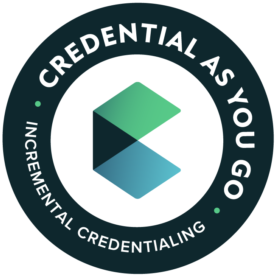Quality assurance frameworks for credentials may be process-based, outcome-based, or a combination.
The following are examples of organizations that have developed quality frameworks for the broader category of non-degree credentials – not specifically for certification.
The Education Quality Outcomes Standards’ (EQOS) Quality Assurance Framework
The EQOS Framework —which is primarily outcome-based with some process-based elements— assesses student outcomes in five areas: learning, completion, placement, earnings, and satisfaction. This framework is being used to identify high-quality training opportunities that lead to economic opportunities for individuals who complete those training programs.
The National Skills Coalition Principles of Quality Non-Degree Credentials
The National Skills Coalition, in partnership with a set of states, developed a definition and guiding principles for non-degree credentials. This quality assurance framework is both outcome- and process-based. According to this framework, for a credential to be viewed as a quality non-degree credential, there must be job opportunities that value it, evidence that the credential holder has mastered a set of competencies, and evidence of employment and wage outcomes after it is earned. In addition, it is highly preferred that the credential can be stacked into other education and training opportunities.
The Rutgers Education and Employment Research Center Conceptual Framework to Guide Measurement of Non-Degree Credentials
This framework uses a combination of outcome- and process-based characteristics in four areas: credential design, competencies, market processes, and outcomes. The outcomes section looks beyond employment and wages to social benefits focused on individual health and well-being and to benefits to employers, including increased worker retention and an improved employee pipeline.

Credential As You Go has acquired three phases of funding to date. Lumina Foundation funded Phase I, resulting in the Incremental Credential Framework for testing. The Institute of Education Sciences, U.S. Department of Education funds Phase II (Grant R305T210063), which focuses on rapid prototyping of and research on incremental credentials with a national campaign. An anonymous private donor fund at the Program on Skills, Credentials & Workforce Policy at George Washington University funds the development of the prototype Learn and Work Ecosystem Library. Walmart funds Phase III, which focuses on systems change for expansion and sustainability of incremental credentials. The opinions expressed are those of the authors and do not represent views of Lumina Foundation, Institute of Education Sciences, the U.S. Department of Education, Walmart, or George Washington University.